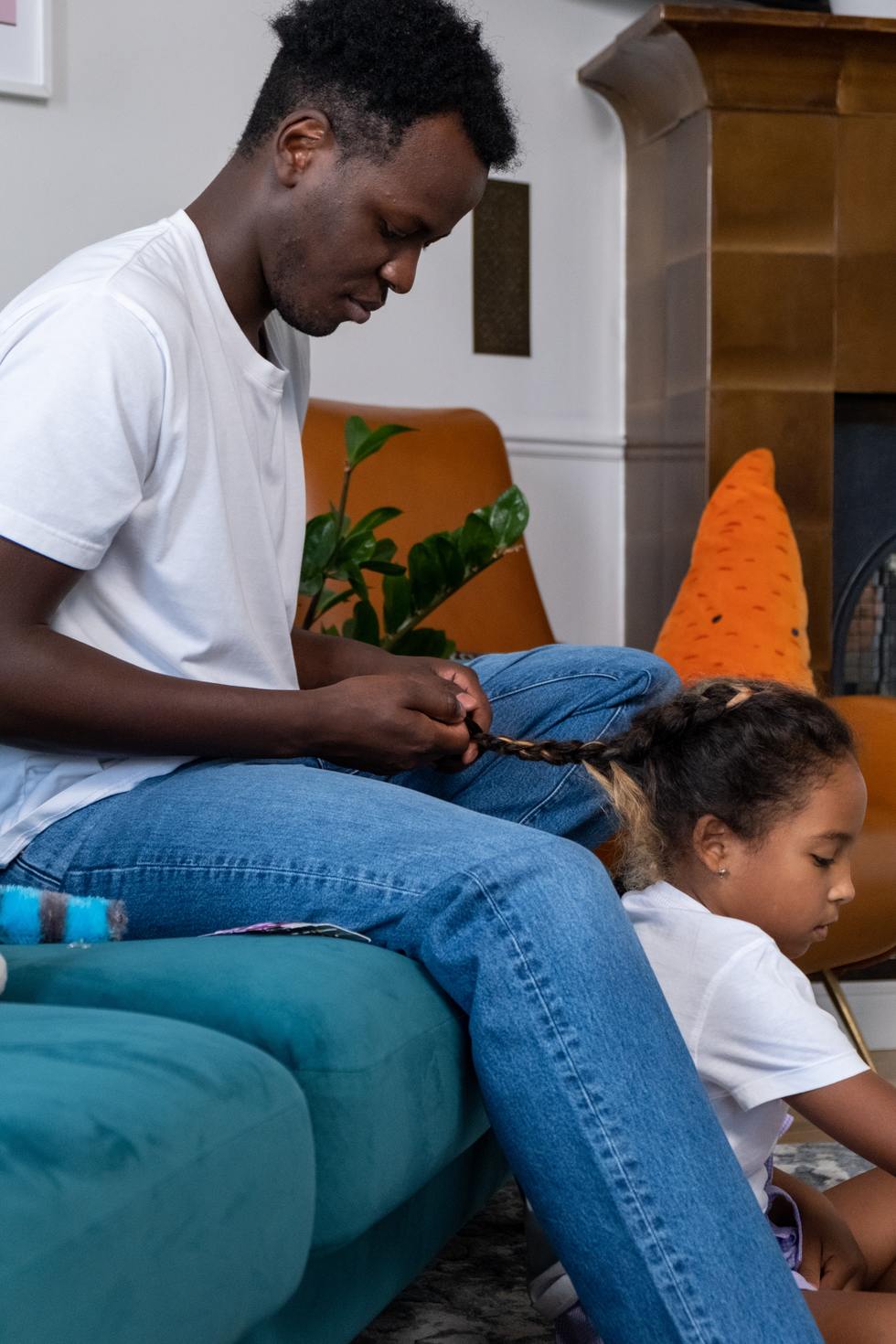MAY 27, 2021
Divorced Dads Drive Carpool, Too: How Families Can Share Household and Parenting Responsibilities After Divorce

Balancing work and allocating parental responsibilities between parents can be a challenge, particularly if both parents work outside the home. This challenge can be further exacerbated when parents get divorced, and their children begin to rotate between two households.
Following a marital separation, the family dynamic and the needs of the family as a whole change. Parents may, by circumstance or by choice, have to assume additional responsibilities that revolve around having their own separate household to manage, child-rearing, and work outside the home. It can feel overwhelming.
I know because I went through it myself. As a once stay-at-home parent of four children I also homeschooled, I found myself assuming a disproportionate amount of household and childcare responsibilities. It continued even after I went back to work.
When my marriage ended, and my children’s dad had his own parenting time, I faced a choice: continue to shoulder the burden or take a stand that I wouldn’t do all of the heavy lifting myself. After all, I had to work outside the home, too.
Fast forward to my second marriage. Suffice it to say that I did things differently the second time around when we blended families. My husband, Doug, and I, depending on who’s busy at work or who has more pressing parenting responsibilities, make it a point to help each other out as much as we can so one of us isn’t more burdened than the other.
Changing the way I lived, however, didn’t come easy. It took a lot of breaking of old habits, planning, and soul searching to create the life I wanted. And that’s a life I can enjoy without feeling like a workhorse 24/7.
Whether you’re recently divorced or have been trying to more equitably balance parenting responsibilities with your ex-spouse, or are simply trying to better your current living situation with your current spouse or partner, it makes no difference. I have a few tips for you.
Get rid of traditional expectations.
When coming up with a system that works for you and the other parent of your kids, you first need to clear your mind of any preconceived notions you might have of what your responsibilities at home should be. These ideas can come from what your responsibilities were while you were married or from traditional gender roles.
For instance, if you have established the rules of your house according to expectations that the husband is the breadwinner and the wife stays at home to care for the kids and the house, and then you divorce, each of you may have to assume roles previously unfamiliar to you.
In this example, as a husband, you might have to become versed in childcare, cooking, and cleaning, whereas as a wife, you might have to find gainful employment outside the home. The problem is that old habits are hard to break, and women tend to take on more regardless of a change in their situation.
According to a 2020 paper from the Institute for Women’s Policy Research titled, “Providing Unpaid Household and Care Work in the United States: Uncovering Inequality,” women continue to assume more household and childcare responsibilities. More specifically, the research found that women spend two hours more per day than men doing unpaid chores at home.
The research, which based its analyses on data from the U.S. Bureau of Labor Statistics “Time Use Study,” found that women between the ages 15-24 spent 3.7 hours daily performing unpaid housework and care work as opposed to their male counterparts who performed 1.7 hours. The differential reflected a 54 percent gender gap.
As couples aged, they fared only a little better. Among couples between 25 and 34, women spent eight hours each day doing housework and taking care of kids versus men, who spent 3.9 hours, reflecting a 51 percent gender gap.
Women falling into the age groups of 35-44, 45-54, 55-61, and 62 and over similarly continued to do more at home than men. The age groups experienced 41 percent, 27 percent, 21 percent, and 20 percent gender gaps, respectively.
To combat these trends, parents, especially those who are divorced, need to throw away the idea of what they think their households should be and, instead, choose a system that works for them. For some women, that might entail relinquishing a certain amount of control over responsibilities that used to be theirs exclusively. For men, on the other hand, it may mean cutting back time at the office to work more household and parenting time into their schedules.
If the latter prospect causes you to hem and haw, fearing you will experience negative repercussions in your career, there’s research to support a different outcome. And a better one at that.
Amy Henderson, author of “Tending: Parenting and the Future of Work,” and founder of TendLab, a consultancy that helps companies implement policies to support working parents, writes that the benefits of shared parenting can help the entire family. According to Henderson’s research, when both parents are involved in the household and child-rearing, they’re more successful at work.
By spending time with kids, Moms and Dads learn to be more empathetic, altruistic, and collaborative. All of these skills translate well into a workplace environment, breeding success.
On the other hand, parents who are combative and undermine each other activate parts of the brain that cause fear and anxiety, making a strong case for throwing old ways of running a household out the window. Henderson says company executives can support working parents by affording them more opportunities to spend time with their families.
With more awareness of the research supporting shared parenting, parents, especially divorced ones who have an opportunity to re-balance and re-prioritize their lives, can embrace a new time and way of doing things.
Be open to learning new skills.
Be honest; were you born knowing how to do laundry, cook a meal, or run a dishwasher? I know I wasn’t, my husband wasn’t, and neither were my children, both male and female. These are skills they and I learned over the years, and you can, too.
There’s no shame in enlisting an expert to help you either. If, for example, you’ve never been an organized person but would like to be better able to run your household efficiently, you can hire a household organizing company. Washington-based Simplify Experts will visit you in your home to set up your space and provide tips about maintaining it moving forward.
Then there’s the dad who created a YouTube channel to educate other parents on how to complete basic household chores. With more than 3.2 million subscribers to his “Dad, how do I?” series, Rob Kenney offers tutorials and “dadvice” on anything from how to iron a shirt to baking biscuits. For the reader, there’s also a book.
Even during those times when you’re on your own, you don’t have to assume every task yourself. Depending on the ages of your kids, it’s OK to ask them for some help. They may even be able to teach you a thing or two. Not to mention collaboration can be good for building a stronger bond between you and your kids, particularly after a divorce.
Communicate and cooperate.
An important aspect of co-parenting is the capacity to put aside differences with your spouse or ex-spouse. Then unify toward a clear goal of raising your kids to be well-adjusted, compassionate, and successful adults.
If you’re continually unable to coordinate with each other to find a schedule that best fits your lifestyles together and individually (yes, even married couples should have an identity apart from their spouse), children can feel unstable in their upbringing. That could, in turn, offer them — and potentially you — a life filled with unnecessary troubles. Troubles that will likely be far more disturbing than any you’ll encounter doing a fair share of the carpooling.
Stay up to date
Subscribe to our newsletters
Subscribe to one or more of our newsletters, delivering meaningful insight on topics that matter to you and your family.





